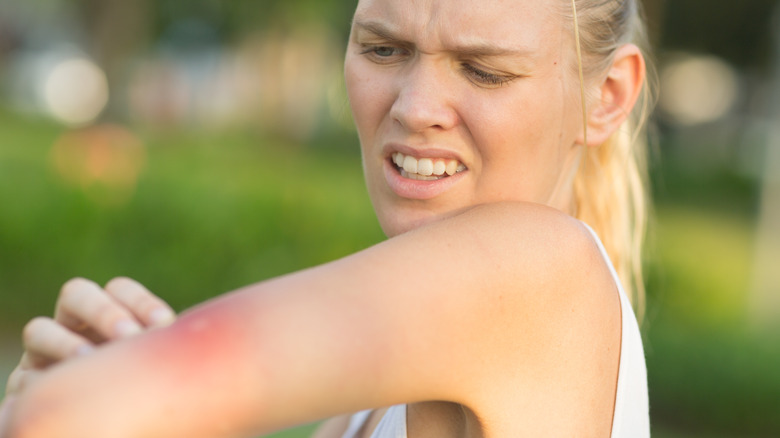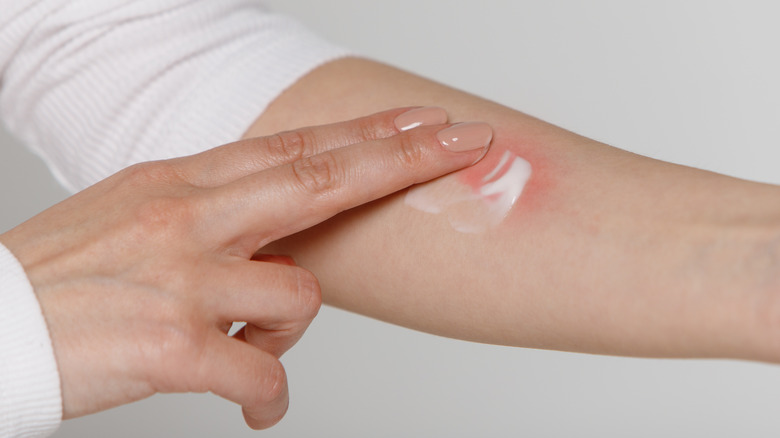When You Get A Mosquito Bite, This Is What Happens To Your Body
Mosquitoes are perhaps one of the most irritating bugs known to man. These pesky insects literally go for blood, and they can ruin time spent outdoors if you're not prepared.
Female mosquitoes are the more aggressive ones that bite because they need the protein found in blood to produce eggs. They inject a needle-like part of their mouth, called a proboscis, into your skin in order to help them feed. According to Scientific American, the proboscis is a sophisticated apparatus with six different tools that help the mosquito to draw blood. Five of these parts work to pierce the skin and hold it open while the remaining one, called the labrum, serves as a straw-like device. This process is so effective that scientists use it as a model for making biopsy needles.
As mosquitoes drink your blood, they inject saliva into your bloodstream. The chemicals in their saliva stimulate the body's response, often resulting in a red, swollen, itchy mark on the surface of the skin (via Mayo Clinic).
Side effects of mosquito bites
People react differently to mosquito bites. Some lucky individuals only have a mild reaction that lasts a few days, while others can develop hives or blisters along with joint swelling. For some, a bite can result in more potentially dangerous swelling conditions such as anaphylaxis, although this is a rare occurrence (via American Academy of Allergy, Asthma, and Immunology).
Additionally, mosquitoes can transmit illnesses including West Nile, Dengue, Chikungunya, and Zika viruses. Other diseases include Malaria and Yellow Fever (via Centers for Disease Control and Prevention). However, for most people, the odds of developing one of these conditions is low (via Prevention).
To treat a mosquito bite, do your best not to scratch it. Try an anti-itch cream to help ease the discomfort. Antihistamines are also an option for people who experience more severe itching. The use of a cold compress or wet washcloth can also reduce swelling (via Self).
When it comes to mosquitoes, prevention is key. Stay indoors during times when mosquitoes are most active, generally in the morning and at dusk. If you do spend time outside, wear light-colored, long sleeves and long pants. Remove any sources of standing water on your property as this is where mosquitoes lay their eggs. To take additional precautions, you can also use repellents such as DEET (via Cleveland Clinic). Should you experience more severe side effects from a mosquito bite, do consult your doctor for further treatment instructions.


